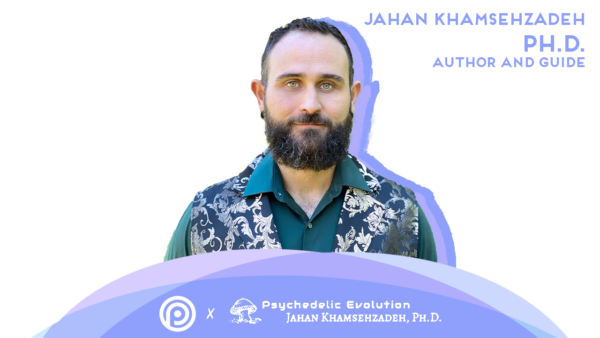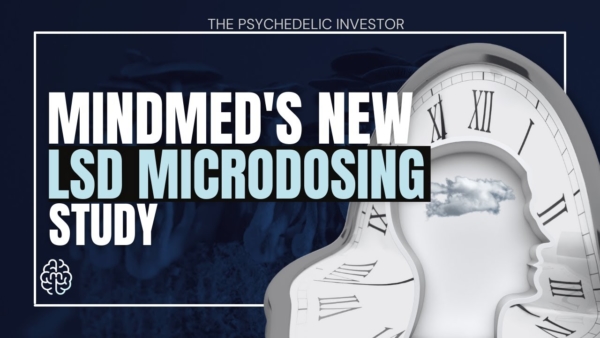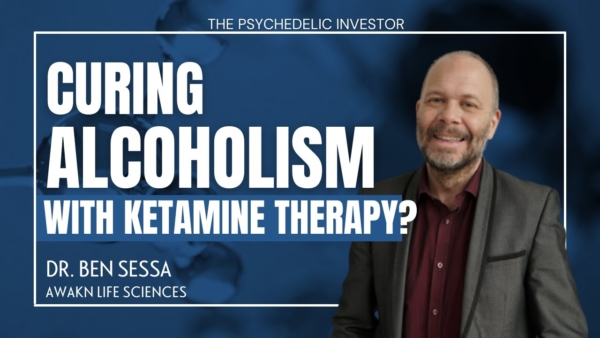
By now, most people reading this article are probably familiar with the thesis for investing in psychedelic stocks. In short, based on current scientific study, psychedelic medicines will disrupt mental healthcare industries, bringing early investors great returns and making the world a better place.
But while this thesis may be sound, the central problem that retail investors face is that it’s not good enough to simply know that one industry will disrupt another. In order to benefit from this disruption, retail investors must choose the specific companies who will lead the charge, five years before the race is decided. Complicating this matter further, there are now more than 50 publicly traded psychedelics companies.
They will not all be winners.
And though I of course do not have a crystal ball, by looking at the progress certain companies have made over the last couple of years, we can compile a list of companies that are the most likely to succeed. Though over the coming years, this list is sure to change.
Without further ado, here are five of my current favorite psychedelic stocks, presented in no particular order. In my next article, I will cover another five of my favorites.
atai Life Sciences (Nasdaq: ATAI)
If you are placing bets on who will win the psychedelics race, atai is as good a wager as any.
First, the company is well financed. As in backed by controversial billionaires Peter Thiel and Christian Angermayer well financed. As of their last financial statement, the company currently had more than $430 million in cash, which will allow them to continue their operations regardless of how their stock, or the wider market, performs.
When looking at their product pipeline, atai has at least 10 programs they are working on. Though most are still in the preclinical stage, some, such as their ibogaine to treat Opioid Use Disorder program, are in Phase 1 trials. Furthermore, they have two programs in Phase 2a, although only the r-ketamine to treat Treatment-Resistant Depression one is a psychedelic program.
The scope and scale of atai’s programs are truly attractive. Through their subsidiaries, atai is working on derivatives of ketamine, ibogaine, MDMA, salvinorin A, DMT and more. Perhaps this is the reason that Cathie Wood’s ARK Invest’s Genomic Revolution ETF (BATS: ARKG) has been investing in atai recently.
Compass Pathways (Nasdaq: CMPS)

Compass Pathways shares a rosy financial outlet with atai Life Sciences. In fact, not only is Peter Thiel also an investor in Compass, but atai itself owns 20.8% of Compass Pathways. This culminates in Compass Pathways holding $294 million in cash and cash equivalents as of the end of Q3.
In terms of molecules, Compass has their flagship Comp 360, a proprietary version of psilocybin (though the patent is being challenged). With this compound Compass is conducting several clinical trials, the furthest progressed of which is a completed Phase 2b trial treating Treatment-Resistant Depression. This was significant as it was the largest ever psychedelic clinical trial, with 233 participants, and was the furthest progressed ever psilocybin clinical trial, being in Phase 2b.
Compass also has Phase 2 clinical trials planned with psilocybin to treat PTSD, Body Dysmorphic Disorder, Type 2 Bipolar Disorder, Anorexia Nervosa, and follow up studies with Treatment-Resistant Depression. Furthermore, they have acquired the rights to next-generation compounds, though we don’t have too many details on them at the moment.
MindMed (NASDAQ: MNMD, NEO: MMED, DE: MMQ)
MindMed has long been the darling of psychedelic retail investors. In May of 2020, it became the first serious psychedelic stock to go public and was able to use that first movers advantage to raise a significant amount of capital. Though far behind atai and Compass, its $145.9 million in the bank as of the end of Q3, is nothing to scoff at.
What makes MindMed truly exciting as an investment opportunity is the breadth of its trials and compounds that they are testing.
To start, MindMed is the only company to have progressed LSD to Phase 2 trials. They recently completed a Phase 2a trial treating Generalized Anxiety Disorder using their version of the substance, called MM-120, and they plan to soon start a Phase 2b trial. They also have a Phase 2 LSD trial treating cluster headaches, one treating depression, and a Phase 2a trial using LSD microdoses to treat adult ADHD. On top of this, they have more Phase 2a LSD trials coming in the first half of 2022, including to treat pain.
MindMed also has the furthest progressed next-generation psychedelic, 18-MC, which is entering Phase 2a trials. 18-MC is a non-hallucinogenic version of ibogaine, and MindMed hopes to treat Opioid Use Disorder with it.
On top of this, MindMed is working on versions of MDMA, psilocybin, DMT, and more, as well as working on a unique way to deliver psychedelics directly to the brain, passing through the blood-brain-barrier.
Cybin Inc. (NYSE: CYBN, NEO:CYBN)

With $63.6 million in the bank as of the end of Q3, Cybin has less money than the companies discussed so far. But what makes Cybin exciting is their progress on next-generation psychedelics.Though they are working on more, Cybin’s two flagship next-generation psychedelics are CYB-003 and CYB-004.
CYB-003 is an altered version of psilocybin that Cybin claims, based on preclinical animal studies, solves many of the problems associated with using regular psilocybin in a therapeutic setting. It’s shorter acting, the effects begin more quickly after ingestion, and there is less variation of effect between individuals. These three changes to the molecule would make CYB-003 a more effective version of psilocybin in a therapeutic context.
CYB-004 is an altered version of DMT. The main change, or at least the main change disclosed, is that CYB-004 will be longer acting than regular DMT. Whereas psilocybin’s duration of effect is often considered too long for a therapeutic session, the opposite problem holds true for DMT. With the main effect lasting around 10 minutes, it can be argued more therapeutic benefit would be derived from a longer experience.
It is important to note that these two compounds are still in their early phases. Though there have been promising animal studies, we need to see equally positive human trials before we can definitely say that CYB-003 and CYB-004 are more effective than traditional psilocybin and DMT. Both CYB-003 and CYB-004 are expected to begin Phase 1 safety trials in 2022. Cybin will attempt to treat Major Depressive Disorder and Alcohol Use Disorder with CYB-003, and Anxiety Disorders with CYB-004.
Field Trip Health (Nasdaq: FTRP, TSE: FTRP)
Field Trip, like Cybin, has a solid amount of money in the bank, though less than the first three psychedelic stocks mentioned. At $74.5 million as of the end of 2021, with spending for the most recent quarter at $15.6 million, Field Trip has enough cash in the bank for a little over a year. Unlike the first four companies mentioned, however, Field Trip has revenues which are growing quickly. In the quarter ended on December 31st, 2021, Field Trip had $1.4 million in revenue, up 50% quarter over quarter, and 330% year over year. It will be interesting to see whether this revenue growth will be able to shrink the company’s deficit in 2022.
Field Trip has two exciting aspects to it: its psychedelic therapy clinics, and its next-generation psychedelics program.
Its clinics are where it derives its revenues from. Field Trip is currently the largest psychedelic medicines clinic operator in Canada, and is expanding rapidly in the United States. In total, they currently have 12 clinics worldwide. Though limited to ketamine therapy at the moment, the only legally available off-label psychedelic therapy, once MDMA and psilocybin therapies become legal in the coming years, they will expand to those therapies as well.
Its next generation psychedelics platform is also exciting. Currently Field Trip has two lead drug candidates, FT-104 and the FT-200 Group. FT-104 is a unique compound similar in effect to psilocybin, but shorter acting in the 2-3 hour range. In a patent application it was revealed that FT-104 is a “prodrug” of 4-HO-DiPT. Essentially, this means that FT-104 will metabolize in the body, turning into 4-HO-DiPT. Without going too into detail, 4-HO-DiPT has similar effects as psilocybin, but is shorter acting.
The FT-200 Group is a grouping of molecules that Field Trip is working on, from which they still need to pick a lead candidate. The aim of the 200 Group is for the molecules to specifically hit the serotonin 2A receptor in the brain (5HT2A), while not hitting other brain receptors such as the 2B receptors. Most current psychedelics, such as psilocybin, provide therapeutic benefit through their interaction with the 5HT2A receptor, but their interaction with other receptors like 5HT2B can cause negative side effects such as an increased risk of cardiovascular toxicity. Therefore, if Field Trip can successfully produce a molecule that effectively targets just the 2A receptor, they could have a safer compound.
Like with Cybin, it must be noted that Field Trip’s next-generation psychedelics are still at the starting line, though FT-104 is set to enter Phase 1 trials soon.
In Conclusion
Though there are many companies working on psychedelic medicines, not all of them will be successful. In order to choose the best psychedelic stocks, we have to look at the foundations of the companies: their finances; and their progress on moving their medicines towards market.
Though this list is NOT exhaustive, the five above companies all have a good shot at winning the race.
Next week, I will return with another article looking at 5 more companies that I like, this time with smaller market caps. These smaller companies may have less financing, but they are nevertheless enticing bets. Plus, if they are successful, the return multiples will be much higher.
Full Disclosure: James Hallifax holds positions in MindMed, Compass Pathways, atai Life Sciences, the Horizons Psychedelic Stock Index, and the Advisor Shares Psychedelics ETF.
The views of the author are for informational purposes only, and should not be construed as financial advice, but rather his own personal opinion. Furthermore, the views of the author are not necessarily representative of Psychedelic Spotlight. His views and opinions are his own.





